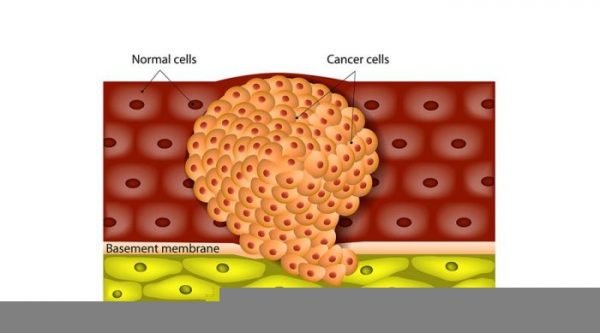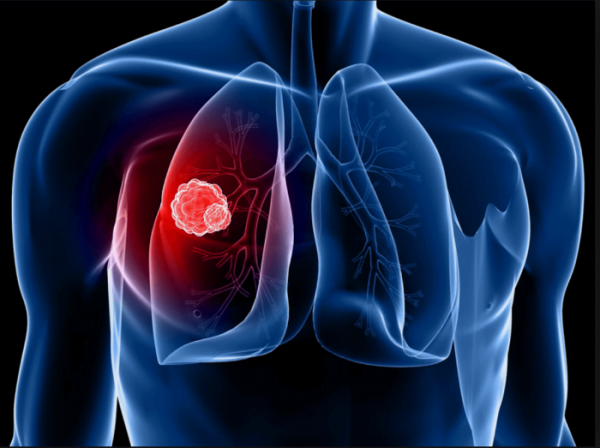ABOUT COLON/BOWEL CANCER TREATMENT
Colon/bowel cancer treatment, which may also be referred to as colorectal cancer treatment, varies depending on the location and stage of the cancer. Cancer occurs when there is an abnormality in cell growth, which causes the cells to divide and grow quickly when the cell should die to make room for new cells.
Colon/bowel cancer can occur in the rectum, small intestine or the large intestine, however, it most commonly occurs in the large intestine. This type of cancer most commonly occurs in patients over the age of 50, however, it can also occur in younger patients. It is recommended that patients over the age of 50 undergo regular screening for colorectal cancer, which involves performing a colonoscopy to check for polyps or any abnormalities in the bowel. Polyps are abnormal growths of tissues, that may or may not become malignant. They are usually removed during routine screening if found. Patients who have had polyps should also undergo regular screening.
Patients with colon/bowel cancer may experience changes in bowel movements, constipation, blood in stool, fatigue, anaemia, and abdominal pain. However, not all patients experience symptoms. To make a diagnosis, the doctor may perform a sigmoidoscopy or a colonoscopy. A sigmoidoscopy is a procedure which involves inserting a sigmoidoscope into the rectum to view the rectum and part of the large intestine. A colonoscopy is similar to a sigmoidoscopy, however, it allows the entire large intestine to be examined.
Colon/bowel cancer is also more likely to occur in patients who have a family history of this cancer and in patients who have ulcerative colitis or Crohn’s disease. Once colon/bowel cancer has been found, the doctor will classify the stage and grade of the cancer, which will help to determine the best treatment for the patient. Treatments include surgery, chemotherapy, radiotherapy, and targeted drug therapy.
Surgery is the most common method of treatment and is often performed in combination with chemotherapy and/or radiotherapy. There are different types of surgery which include a colonoscopy (if the cancer is in the early stage, polyps may be removed during a colonoscopy), laparoscopic surgery to remove polyps that cannot be removed during a colonoscopy, colectomy, and colostomy.
A colectomy is a surgical procedure to remove all or part of the large intestine. A colostomy is a surgical procedure performed to join one end of the large intestine to a stoma in the abdomen, which is an opening made in the abdomen to get rid of waste that is collected in a pouch outside of the body. A colostomy may be performed as a temporary change to the body, or some patients may need to permanently keep a colostomy pouch.
Chemotherapy is the use of medicine or drugs that contain chemical substances to treat cancer. Radiotherapy is a high-energy radiation treatment used to treat cancer which involves directing radiation beams at the targeted area to destroy the cells. Targeted drug therapy involves prescribing drugs that are designed to target specific defects in the cancer cells which cause them to grow and multiply, and this treatment is usually used in conjunction with chemotherapy.
The length of time required for treatment varies and is dependent on the stage and grade of the cancer and on the chosen method of treatment.
Recommended for
- Colon/bowel cancer
- Rectal cancer
TIME REQUIREMENTS
- Number of days in hospital: 3 – 10 days.
If undergoing surgery. However, the time spent in hospital varies depending on the type of treatment.

HOW TO FIND QUALITY TREATMENT ABROAD
BEFORE COLON/BOWEL CANCER TREATMENT ABROAD
Patients will meet with the doctor to discuss the methods of treatment and to discuss the recommended treatment plan. Patients should prepare any questions they may have and raise any concerns before beginning treatment.
If a colonoscopy is being performed, patients will need to complete a “colon prep” which ensures that their bowels are empty ahead of the procedure. Although methods of clearing the bowels vary, most patients will be asked to adopt an all-liquid diet 1 to 2 days before the procedure and to avoid red or purple food or drinks in the days before the procedure. The patient is usually prescribed a laxative solution to take the day before the procedure, in order to fully clear the bowels. The amount of solution to be taken, varies with each patient and is generally mixed with 3 to 4 liters of water which is to be taken over the course of a few hours, depending on how much needs to be taken.
After the colon prep, patients will be advised to avoid solid foods and to stop drinking ahead of the general anesthetic.
HOW IS IT PERFORMED
If undergoing surgery, the patient is administered with a general anesthetic before the surgery begins. If the patient is undergoing a colonoscopy, then they are administered with light sedation.
A colonoscopy involves inserting an endoscope fitted with a camera into the rectum through the large intestine. The camera is maneuvered through the large intestine and the doctor will examine the images on a screen as it is passed through. Small instruments are attached to the endoscope and are used to remove polyps. One removed, the doctor will then remove the endoscope.
A colectomy involves removing part or all of the bowel, however the entire bowel may need to removed, and the procedure is referred to as a proctocolectomy. A colectomy can be performed as an open surgery or laparoscopically.
An open colectomy involves making a long incision in the abdomen to access the colon. The surgeon uses tools to free the colon from the surrounding tissue, and will then cut a portion of the colon which is cancerous, or the entire colon out. A laparoscopic colectomy involves making several small incisions in the abdomen. Using a small camera threaded through one incision and using surgical tools through the other incisions, the colon is lifted out. This allows the surgeon to operate on the colon outside of the body without making large incisions. Once the cancer has been removed, the surgeon reinserts the colon through the incision. The surgeon will then reconnect the colon to the digestive system in order to restore the function of getting rid of waste.
If the entire colon has been removed, the surgeon will make a connection between the anus and small intestine, by using a small section of the small intestine to form the connection. This allows for normal evacuation of the waste.
A colostomy is performed to divert the large intestine to the abdominal wall, where a stoma is created and connected to a pouch, so that waste can be removed. It may be performed if a portion of the large intestine has been removed and cannot be reconnected. If the procedure is performed but will be reversed, then a loop colostomy is performed, however, if it is permanent, then an end colostomy is performed. A loop colostomy involves taking a loop of the colon and pulling it through a hole in the abdomen and attaching it to the skin, wheres an end colostomy involves taking one end of the colon and pulling it through a hole in the abdomen and attaching it to the skin. These surgeries can be performed as open or laparoscopic surgery.
Chemotherapy is performed by administering dugs intravenously (IV), intra-arterially (IA), or via intraperitoneal (IP) injections to destroy the cancer cells. The treatment is performed over a series of weeks.
Radiotherapy is performed by directing radiation beams at the targeted area, and like chemotherapy, the treatment usually requires multiple sessions which are performed over a series of weeks.
Targeted drug therapy is performed by administering a number of drugs to the patients which will target certain components of the cancer cells. The treatment will usually performed in combination with chemotherapy.
Treatments are most often used in combination with each other, particularly if the cancer is advanced an surgery is being performed. Chemotherapy may often be used before the surgery to shrink the tumor or after the surgery to destroy any cancer that could not be removed during surgery.
Anesthesia
General anesthetic.
Procedure duration
The duration of treatment depends on what type of surgery or treatment is performed.

WHAT TO EXPECT AFTER COLON/BOWEL CANCER TREATMENT
Post procedure care
After the surgery, patients will initially be fed a liquid diet intravenously before moving onto clear liquids under hospital supervision. A return to a normal diet will take some time and should be attempted under the advice of a doctor.
After treatment, patients will need to have regular cancer screening, usually undergoing regular colonoscopies and CT scans, to ensure the cancer does not return.
Possible discomfort
Weakness and lethargy are to be expected for at least a couple of weeks after the surgery.
IMPORTANT THINGS TO KNOW ABOUT COLON/BOWEL CANCER TREATMENT
Potential risks
- Infection
- Bleeding
- Injury to other organs
- Hernia
- Bowel obstruction
Side Effect
- Fatigue
- Hair loss















